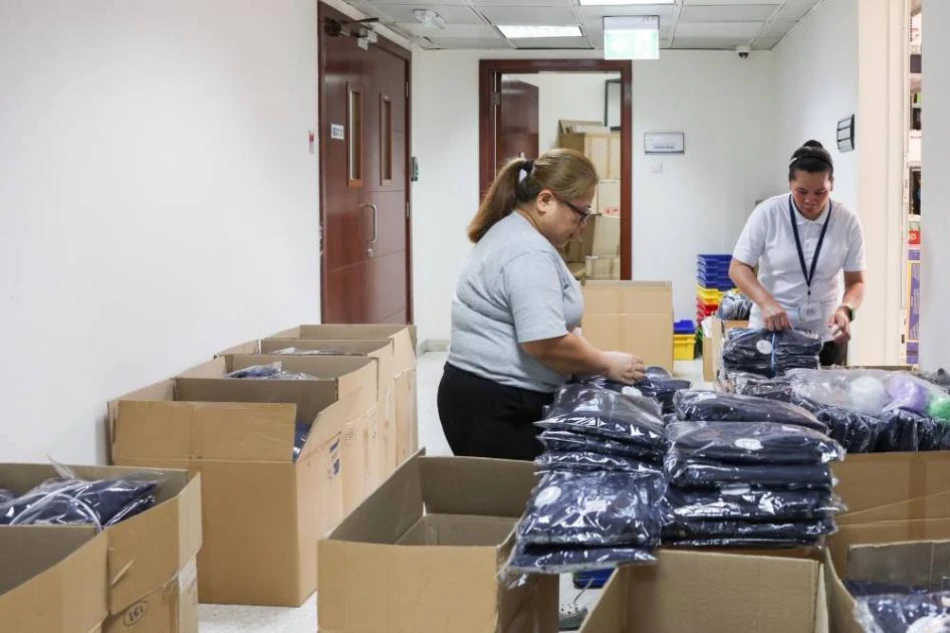
Back to School: Students Across the Country Gear Up for Monday, August 25th Return
Abu Dhabi Schools Rush Final Preparations as New Academic Year Launches Amid Fee Transparency Push
Abu Dhabi's education sector is implementing sweeping changes as 250 schools prepare to welcome back students for the 2025-2026 academic year, with new fee transparency requirements taking effect alongside last-minute maintenance work. The emirate's Department of Education and Knowledge is enforcing stricter disclosure rules for school fees while some institutions work around the clock to complete facility upgrades before classes begin August 25.
Operational Timeline Reveals System-Wide Coordination
Administrative and teaching staff return to work Monday, August 18, followed by specialized training programs running through August 22. This week-long preparation period reflects Abu Dhabi's systematic approach to educational quality—a model that contrasts with less structured back-to-school transitions in many international markets.
The staggered return schedule allows schools to complete final maintenance work while ensuring staff readiness. Most schools have finished facility upgrades, though several continue 24-hour maintenance operations to meet Monday's deadline.
Fee Transparency Revolution Reshapes School Economics
Abu Dhabi's new fee disclosure requirements represent one of the region's most comprehensive attempts to regulate private education costs. Schools must now publish department-approved fee schedules on their websites, breaking down charges into six distinct categories: tuition, educational resources, uniforms, transportation, extracurricular activities, and miscellaneous fees.
Cost-Saving Measures for Families
The policy includes a notable provision requiring schools to offer fee exemptions for families willing to use second-hand materials—including donated or resold uniforms and textbooks. This approach mirrors cost-reduction strategies seen in Singapore's education system, where resource sharing has become increasingly common.
Schools can charge separate fees for board examinations but must clearly justify administrative costs such as document processing, supervision, and mailing. The transparency extends to VAT compliance under Federal Decree-Law No. 8 of 2017.
Infrastructure Investment Signals Long-Term Commitment
The maintenance blitz affecting school buildings, courtyards, classrooms, and furniture represents significant capital investment in Abu Dhabi's education infrastructure. Private school administrators emphasize creating "attractive learning environments"—language that suggests competition for enrollment in the emirate's diverse educational market.
Market Structure and Scale
Abu Dhabi's education landscape includes 213 private schools offering varied curricula across different grade levels, plus 37 public-private partnership schools that combine government funding with private management. This hybrid model resembles charter school systems in the United States, though with greater government oversight.
Regional Education Hub Ambitions
The systematic approach to fee transparency and infrastructure investment reflects Abu Dhabi's broader strategy to position itself as a regional education center. Unlike Dubai's focus on international school brands, Abu Dhabi appears to emphasize regulatory oversight and standardized quality measures.
The timing of these reforms—implemented during a global period of education cost inflation—suggests Abu Dhabi recognizes the need to balance quality improvements with family affordability. The second-hand materials policy, in particular, acknowledges economic pressures facing expatriate families who comprise the majority of private school enrollment.
The success of these transparency measures could influence education policy across the Gulf region, where private schooling dominates and fee structures often lack standardization. Abu Dhabi's systematic documentation requirements may become a template for other emirates seeking to regulate their education markets while maintaining competitiveness.
Most Viewed News

 Omar Rahman
Omar Rahman






